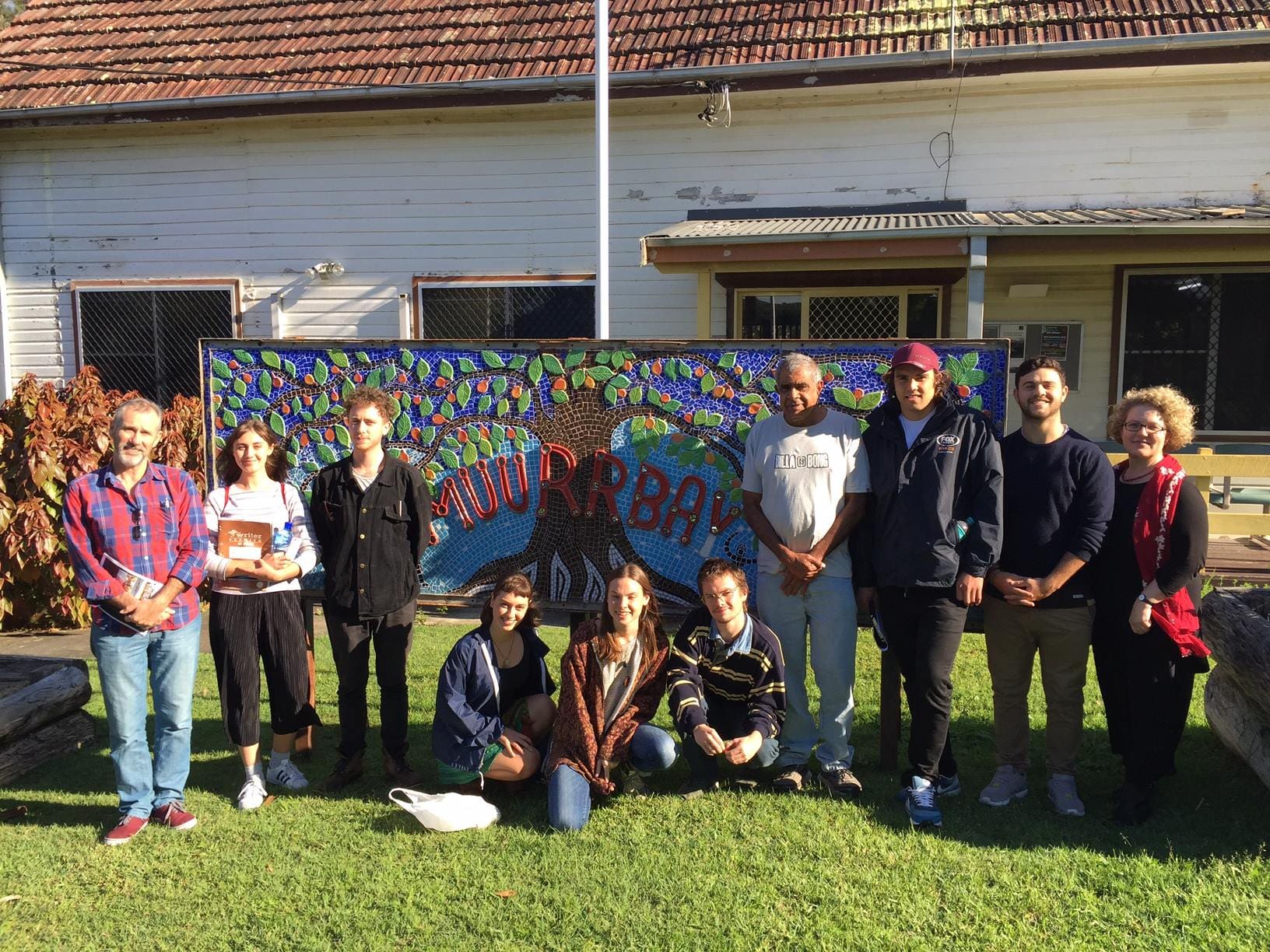Aboriginal affairs seem to only make the news in times of crisis. Although stories about the issues facing Aboriginal communities are important, what often go unreported and unnoticed are stories about the grassroots community initiatives which are empowering Aboriginal people all over the country.
This semester, as part of a class on Indigenous language revival, I visited Muurrbay Aboriginal Language & Culture Co-operative in Nambucca Heads on Gumbaynggirr country (NSW north coast). Muurrbay is a community-run organisation focused on re-awakening the Gumbaynggirr language and strengthening Gumbaynggirr culture. Founded in 1986 in the old mission church hall, using contributions from the pensions of local elders who were concerned about the declining use of their language, Muurrbay has become a model for Aboriginal language revitalisation across Australia.
Muurrbay initially focused on recording the language knowledge of the few remaining Gumbaynggirr speakers, and developing resources which could be used to teach the language to younger generations. It has now grown into a support network for other Aboriginal communities along the NSW coast seeking to revitalise their languages, including Bundjalung, Dhangatti, Gathang, Awabakal, Wonnaruwa and Darkinyung. Locally, the organisation runs language classes for the Aboriginal community and continues its language research, documentation and resource development work, alongside promoting awareness of Gumbaynggirr language to the broader community. When we walked in, CEO Uncle Gary Williams was working on some Gumbaynggirr language translations for the popular ABC show Cleverman.
For Uncle Gary, language revitalisation is fundamental to reclaiming and celebrating pride in Gumbaynggirr cultural identity. He also sees language and cultural revival as “tied up with the struggle for land rights, because in the end the language comes from the ground”. Muurrbay has developed collections of traditional stories about culturally significant sites, and collaborated with local councils and National Parks to put up signs explaining the Gumbaynggirr cultural perspective on various places in the area.
Yet perhaps the greatest area of activity for Muurrbay is supporting Gumbaynggirr language programs in schools. Uncle Gary’s “big dream” was for “Gumbaynggirr people to be able to make a living teaching their language”. There are now language programs of some description in 39 primary and high schools in the area – so much interest that, according to Uncle Gary, Muurrbay is experiencing a “teacher drought”, struggling to keep up with demand.
The school programs range from lessons of an hour a week to more developed programs like that of Woolgoolga High School. When we visited Woolgoolga, students were able to hold lengthy conversations in Gumbaynggirr, and we were treated to a puppet show performance and a number of songs. For the school’s Aboriginal students, some of whom were Gumbaynggirr themselves, the language lessons were evidently a source of excitement and pride. In the words of one student: “we as the next generation have got to carry it on”.
Thanks to Muurrbay, there are now several hundred Gumbaynggirr people who have some knowledge of their ancestral “lingo” – a huge increase from the early 1980s, when only a handful of elders could speak the language. Yet despite this success, Muurrbay is severely under-funded. There are approximately 18,000 Gumbaynggirr-identifying people on Gumbaynggirr country, but Muurrbay receives only $450,000 per year – or $25 per Gumbaynggirr person per year. Muurrbay has a handshake agreement with the Department of Aboriginal Affairs that this funding will continue for the foreseeable future, but given the severe cuts to Aboriginal community services under the previous Abbott government, this is not a particularly comforting promise. “We never know quite what will happen next year”, says Uncle Gary.
The unit of study for which we took the trip to Muurrbay – KOCR3607, Re-Awakening Australian Languages – also has a somewhat uncertain future. The subject only had a small number of enrolments this year, and faces cancellation next year unless more students are interested. Whether or not you are a linguistics student, if you are interested in Aboriginal languages and cultures I urge you to consider taking this unit. Muurrbay, like many Aboriginal organisations, is also in constant need of volunteers. If you have some time over the summer break, consider sending them an email to see what they need help with.





